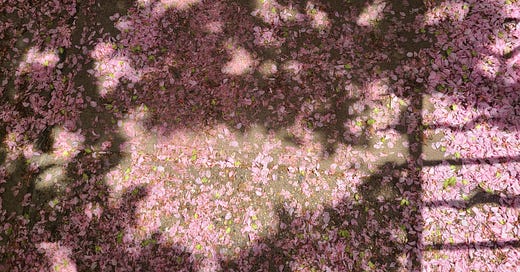I don’t remember if it was my wife Jess or her sister Julia — actually, I think it was both of them. They turned to me, eyes wide like they’d seen a ghost or seventy, and gasped: You don’t know what ambrosia is?!
I did know, or I thought I knew; ambrosia is the food of the gods. It’s what Zeus, Hera and all the others that underpin Western culture ate atop Mount Olympus. Ambrosia is a concept, outside of the realm of human experience.
No, Jess or Julia or both of them told me emphatically, it’s a dessert. And so, I learned that ambrosia is, also, a kind of fruit salad, that does exist within the realm of humanity: slices of pineapple and oranges, mixed in with marshmallows, coconut shavings, and whipped cream.
To be fair, when I pictured the gods eating ambrosia, I did picture fruit: unimaginable fruit. Thick, pink pineapple, bleeding blood oranges, bursting sapphire raspberries. Fruit more ripe, juicy, and bright than anything I’d seen in real life.
I didn’t picture canned fruit, which is what ambrosia (the ones human can eat) is traditionally made with, apparently. Leave the fresh fruit for the gods; we’ll take the sealed citrus with the brassy aftertaste. I am really moved by the canned fruit of it all. It’s like — let’s get down to brass tacks, people. Get the can opener. We’re making some freakin’ FOOD FIT FOR THE GODS.
According to Wikipedia, ambrosia is often “refrigerated for a few hours to allow the flavors to meld.” This is where I can really imagine the canned fruit thriving. Yes. Absolutely. The fruit juices and dairy liquids need to meld. Coagulation is key. Hephaestus, the Greek god of blacksmithing, heats metal so that it becomes malleable and fuses with other materials; so a refrigerator employs time and cold air to congeal together the disparate ingredients of ambrosia.
The gods ate ambrosia because they had to; this enchanted fruit conferred eternal life. By consuming it, the gods stayed gods. Through ambrosia, they were granted the one thing we humans definitionally cannot have: life everlasting.
And then some people, later, as early as the 1800s, in the American South, decided to mix together fruits and cream and call it the same thing.
Through mythology, we dreamed up a means to immortality, housed inside a platter of fruit. After all, Hephaestus didn’t really eat ambrosia, on a mountain or on a break between welding projects. No, that was the idea of Hephaestus. Some people made him up, told stories about him eating ambrosia and doing all kinds of other things. We imagined something that we cannot create, cannot buy, and cannot find in our reality. And then we imagined something we can create, can buy, and can find in our reality, and named it after that. We called the ancient, miraculous nectar ambrosia; we call this cold casserole ambrosia, too.
Our ambrosia does not give us eternal life. It does perhaps give us a sugar high, which feels a little like immortality, for a moment.
I think again of the canned fruit. To make ambrosia, you don’t have to live somewhere a pineapple can grow. You just have to find the cans in an aisle somewhere.
Use the canned fruit. Put it in the fridge. Allow it to congeal. You won’t get immortality or godliness. You might not even get something that tastes good. But you’ll have it. You’ll have made something. You’ll have made ambrosia.













Share this post